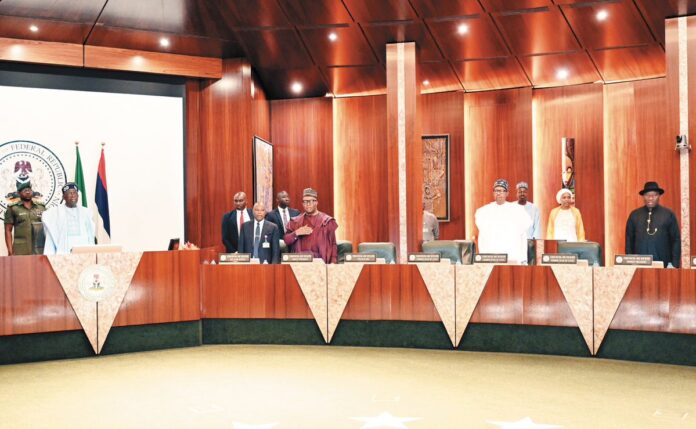President Bola Ahmed Tinubu has firmly rejected the idea of price control as a way to address Nigeria’s rising food prices.
The President made this known during a presidential media chat on Monday, stating that the forces of demand and supply would ultimately balance the market.
“I don’t believe in price control,” Tinubu declared. “I’m sorry. What we have to do is to keep supplying the market.”
His remarks come at a time when many Nigerians are struggling to afford basic food items due to skyrocketing prices. The situation has led to growing calls for government intervention, with some urging stricter price regulations.
The President’s stance has sparked mixed reactions among citizens and experts.
While some economists agree that price control often leads to unintended consequences like hoarding and black markets, others argue that immediate relief is needed for vulnerable Nigerians.
The State of Food Prices in Nigeria
Nigeria has been grappling with a food inflation crisis, which has worsened in recent months.
The National Bureau of Statistics (NBS) reported in its latest data that food inflation rose to 29.34% in November, marking one of the highest rates in recent years.
Staple items like rice, yam, and bread have seen unprecedented price hikes, leaving many families unable to meet their dietary needs.
Economic analysts attribute the rising costs to several factors, including high transportation costs, insecurity in food-producing regions, and the naira’s depreciation.
The removal of fuel subsidies earlier this year has also increased the cost of living, affecting both rural and urban dwellers.
Tinubu’s Market-Driven Approach
President Tinubu believes that the solution lies in increasing the supply of food in the market rather than imposing artificial controls on prices.
“We need to allow the market forces to work,” he said. “The more we supply, the more the prices will adjust themselves.”
This approach aligns with free-market economic principles, which discourage government interference in pricing mechanisms.
However, critics have questioned whether this strategy is practical in the face of widespread poverty and hunger.
A Lagos-based economist, Dr. Ifeanyi Okonkwo, said that while Tinubu’s approach is theoretically sound, it may take too long to provide relief to the masses.
“Market forces will eventually stabilise prices, but the poor cannot wait,” Okonkwo noted. “The government must find a balance between long-term solutions and immediate interventions.”
Calls for Agricultural Reforms
Many experts believe that boosting agricultural productivity is key to solving the food price crisis.
Nigeria is endowed with vast arable land, yet it remains heavily dependent on food imports.
Farmers in the country face numerous challenges, including insecurity, poor infrastructure, and limited access to credit facilities.
President Tinubu acknowledged these challenges during the chat and promised increased investment in the agricultural sector.
“We are working on measures to support our farmers,” he said. “The goal is to make Nigeria self-sufficient in food production.”
The government recently launched an initiative to distribute fertilisers and seeds to farmers, aiming to boost food production in the coming planting season.
Citizens React to Tinubu’s Remarks
Nigerians have taken to social media and other platforms to express their views on Tinubu’s rejection of price control.
Some praised his honesty and market-driven approach, while others criticised the government for not doing enough to ease the burden on ordinary citizens.
“I understand the President’s point, but we are suffering now,” said Aisha Bello, a market trader in Abuja. “How do we survive until the prices come down?”
On the other hand, a Twitter user identified as @RealOlu wrote: “Tinubu is right. Price control doesn’t work. What we need is better policies to increase supply.”
Lessons from Other Countries
Price control is a controversial economic policy that has been implemented in various countries with mixed results.
In Zimbabwe, price controls during the early 2000s led to severe shortages of basic goods, as producers could not afford to sell at the mandated prices.
On the other hand, countries like India have used targeted subsidies to protect the poor while allowing market forces to determine prices.
Experts argue that Nigeria should learn from these examples and adopt policies that balance market dynamics with social welfare.

